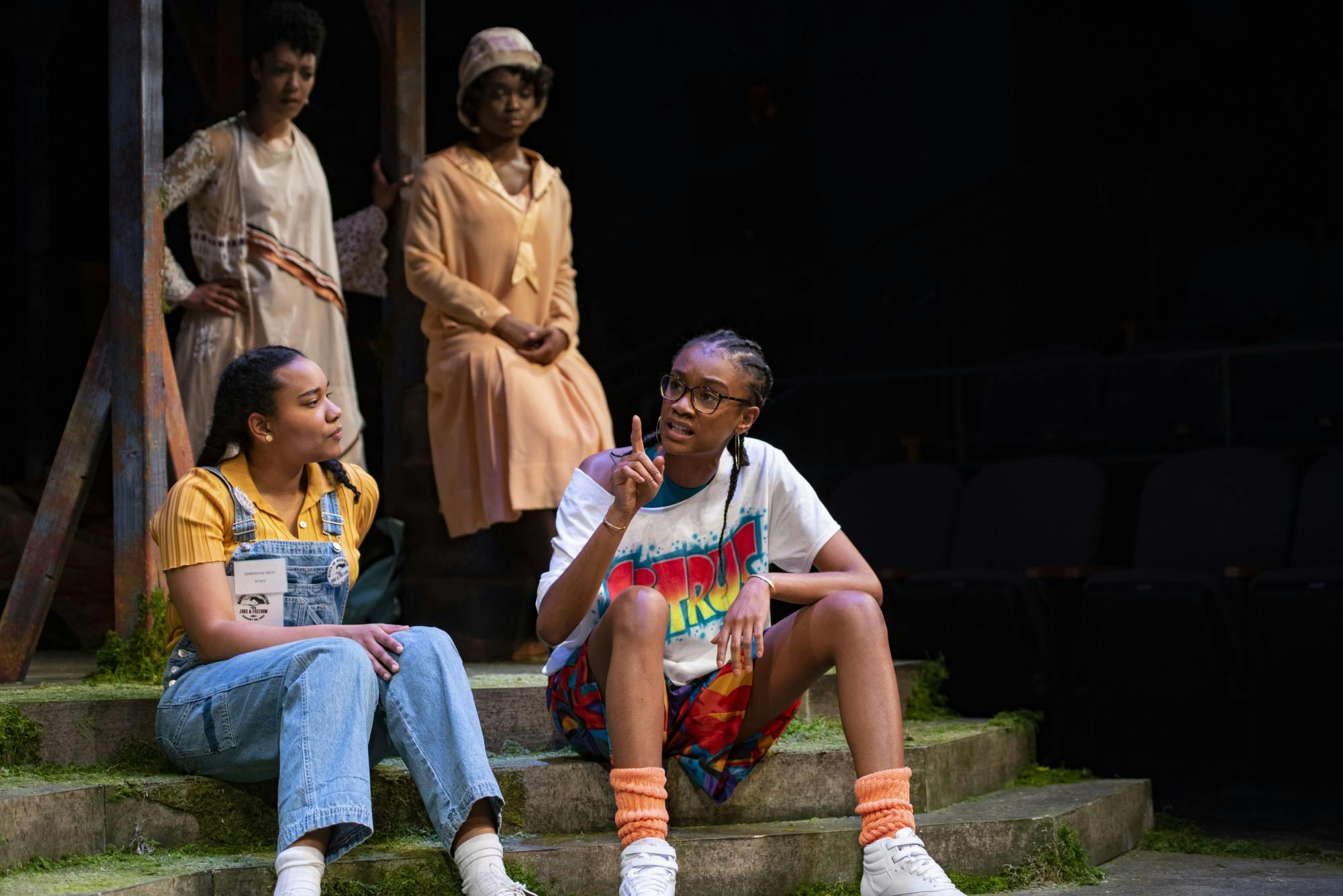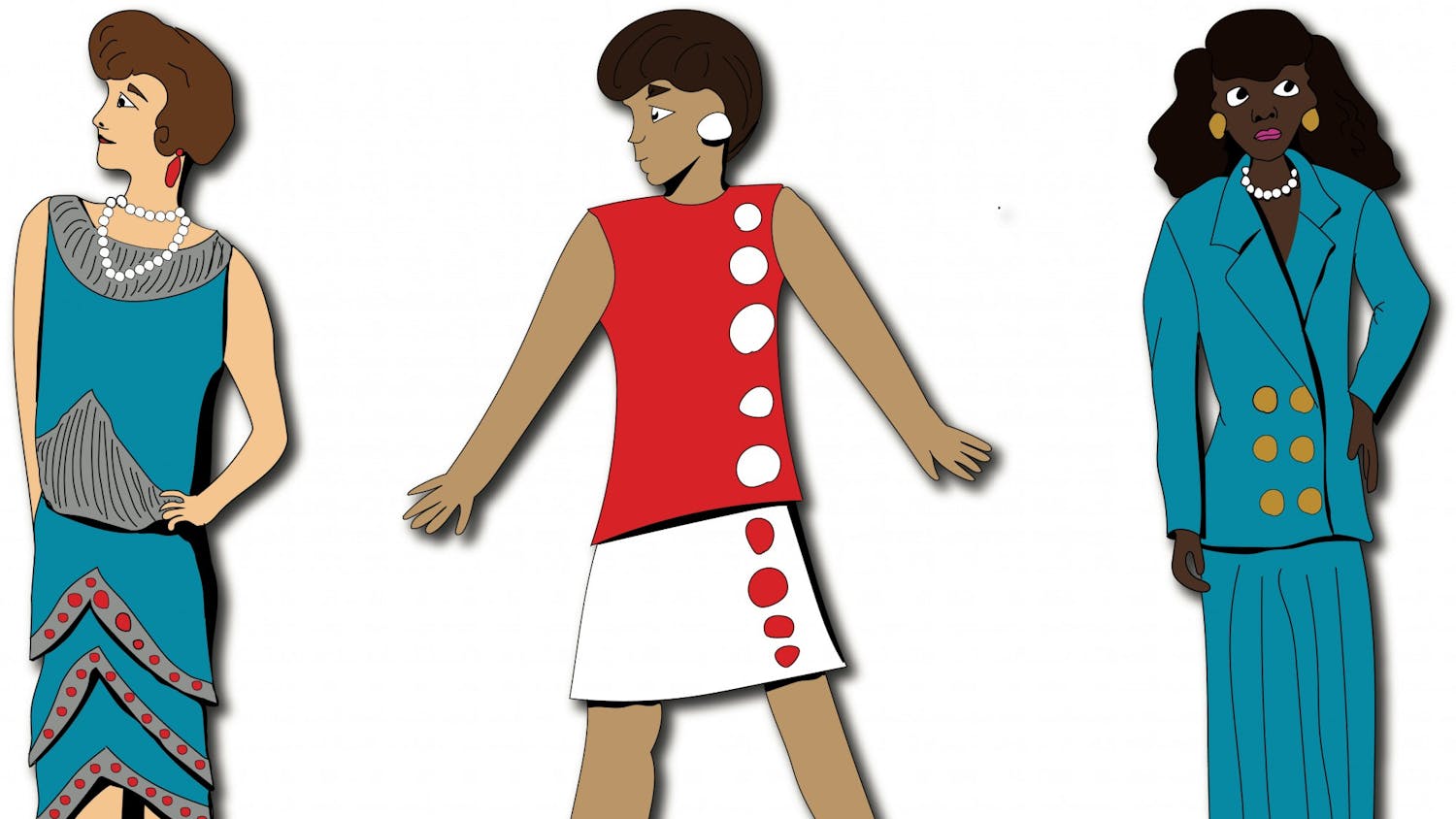Last Saturday, “Citrus” debuted at Northern Stage in White River Junction. Celeste Jennings ’18 wrote “Citrus” as her senior year fellowship project while at Dartmouth. JaMeeka Holloway-Burrell, who directed the initial reading of “Citrus” at the College last May, is directing the production’s Northern Stage iteration as well. “Citrus” is not a play in the traditional sense; rather, it is a choreopoem, which combines dance, music, poetry, rap and acting. It tells the stories of black women throughout history and in the present day, with a focus on personal experiences.
“[The play was] extremely well-done,” said audience member Debby Clinton after viewing the preview performance. “I love the transition of ages and seeing the different perspectives of women in different times.”
At Dartmouth, Jennings focused on design while working at the costume shop, and, as a result, “Citrus” focuses heavily on what clothes the characters wear.
“I was definitely a costume designer before I was a playwright,” Jennings said. “So when I first started thinking about this project and what I wanted it to be, I knew that clothes had to be a really integral aspect of it.”
Specifically, Jennings is interested in studying how fashion and class impact one another. Throughout the choreopoem, the costumes that the actors wear are an integral part of each character that they play.
Costume changes happen on stage, allowing the audience to see actors transition from playing one character to the next. The costume design also helps the audience situate the different time periods in which the various stories take place.
“It was really important to me to study [clothes] and try to figure out how I could make dress a part of the show without making it a show about fashion history,” Jennings said.
The personal nature of the writing creates a challenge for the actors, as many of the stories relate to the experience of being a black woman in the modern world. For example, actress Samantha West ’20 said her role was to be a window into common experiences of black women.
“One of the tenets of the piece as a whole is that we are ourselves up on that stage,” West said. “Like my own character, I play a character at [the Student Nonviolent Coordinating Committee] in the ’60s, and on my overalls is a pin that has my actual name on it. It’s this whole idea that we are the women of the past, and the women of the past are us now. There’s a circular idea of time, with all of it being intertwined.”
Jennings expressed a similar sentiment about the acting in the choreopoem.
“It’s been especially beautiful watching the actresses find themselves within these poems,” Jennings said. “In ‘Citrus,’ you’re not just a character in a play; we really want the actors to be themselves right now and their ancestors from years ago.”
The play features nine actors who rarely leave the stage during the choreopoem. West said there was a great amount of interplay between the actors.
“On stage, we ourselves are reacting as ourselves, and we get to be friends in the space just like we have become friends outside of it, which I love,” West said. “Performances change every night, and you react in different ways.”
The actors’ performances also provide a palpable sense of joy in many scenes. They are clearly having fun on the stage, and this glee transfers directly to the audience.
Through tales of adversity, “Citrus” promotes a message of resilience and hope. Some stories are more lighthearted and humorous, such as the “awkward black girls” sketch that drew laughter from the audience.
On the other hand, some explore darker themes, including unwanted advances made by men. “Citrus” paints a realistic picture through this combination of dark and light. As a result, West said the choreopoem is deeply relatable to many people.
“I think the beauty of Celeste’s writing is that it truly feels so personal, and she conveys in the most precise and poetic way something that quite a few of us, as black women on that stage, have felt,” West said. “Whether that’s being awkward, or feeling like you’re not enough, or feeling excited about something.”
Spoken-word poetry plays a major role in “Citrus” alongside the music and acting. The choreopoem is frequently broken up by recordings of various poems being read, unifying the disparate stories of the characters into one shared experience.
In fact, Jennings said that these poems explain how her writing process for the choreopoem began.
“It was just me taking my poems and putting them all in a document, and then figuring out how I want to organize them,” Jennings said. “And then from there, I thought, ‘I could get my friends in here,’ and then it became a thing about my friends. And then each new iteration added more, until, here we are now.”
The title of the choreopoem itself comes from one of these poems, in which the experience of sitting in the grass and eating an orange is described in vivid detail. Jennings explained that the orange was a metaphor for the themes in the choreopoem.
“I personally think that [oranges] are super delicious, and they’re juicy, but you have to work at an orange,” Jennings said.
Jennings went on to discuss how oranges tend to be messier than apples, and that is why people tend to gravitate toward apples as their snack of choice.
“I think sometimes people are like, ‘I don’t want that. I’m not going to bring an orange to work because it’s messy, and it’s gonna be such a hassle.’ A lot of the time, I think black women are also treated as such, because of all of the burdens from our history that we’re associated with, and in everyday life that we’re still undergoing systematic racism.”
After the initial production at Dartmouth, moving to the professional venue of Northern Stage has presented both opportunities and challenges to the cast and crew, according to West, who has been in both productions.
“It’s different in a lot of ways,” West said. “It’s interesting being in a much larger space, which is exciting, but also scary in certain ways. The story gets to reach more people.
“Citrus” will run Wednesdays through Sundays at Northern Stage until March 15.




